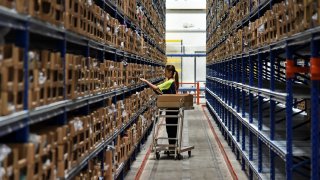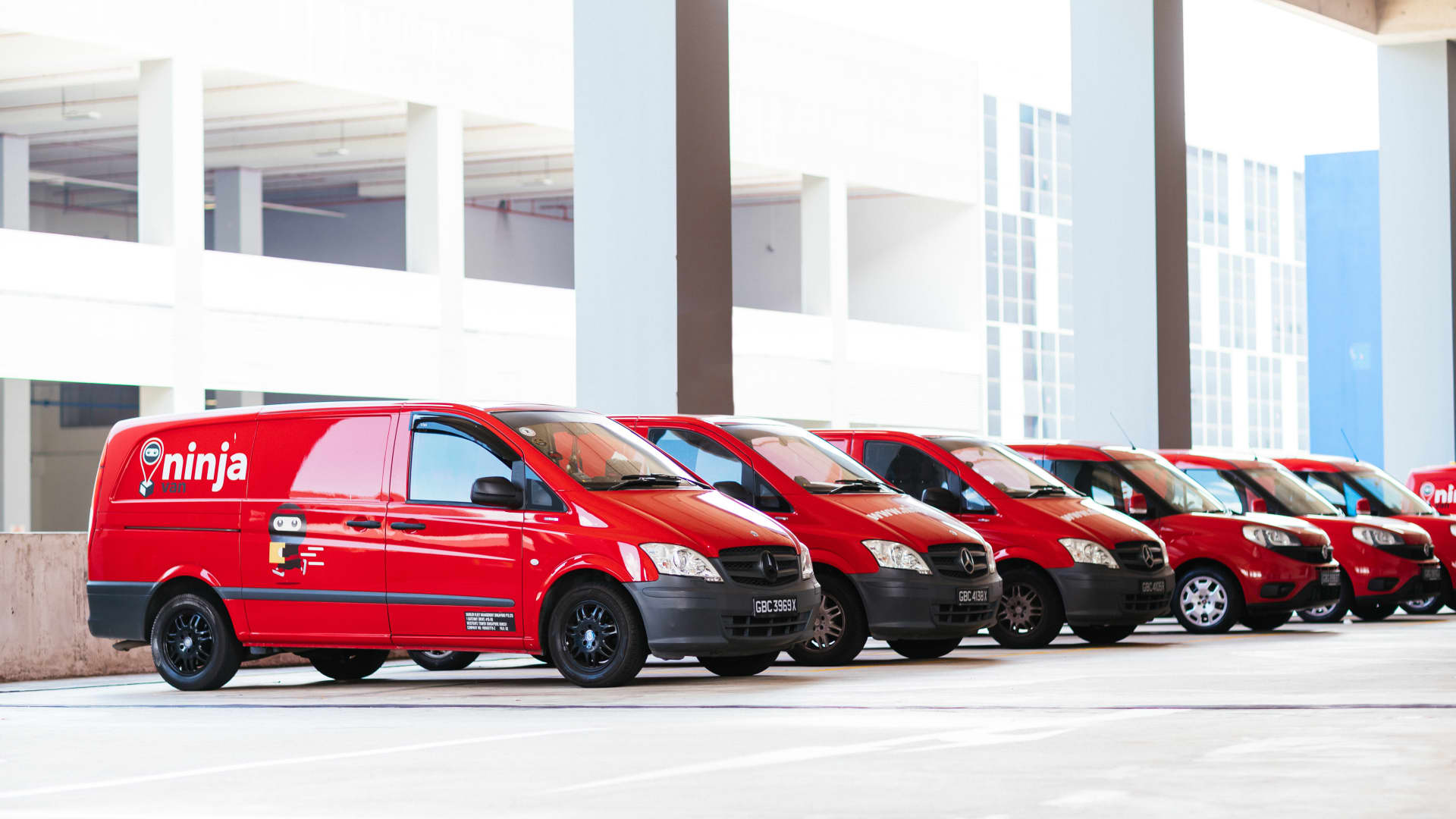
- To seize future opportunities, e-commerce companies need to build on infrastructure that support their businesses, said James Root, senior partner and chairman at Bain Futures.
- When Singapore imposed a "circuit breaker" or partial lockdown at the peak of the Covid-19 crisis last year, it laid bare the delivery and logistical challenges that e-commerce companies face.
- "Ultimately, convenience is king," Vaughan Ryan from NielsenIQ. "It's the convenience of shopping when I want where I want. And it's 24/7."
Consumers are flocking online to shop as people seek to avoid crowds due to the pandemic, but getting the goods into the hands of the buyer can be challenging.
To seize future opportunities, companies that are selling online need to build on infrastructure that support their businesses, said James Root, senior partner and chairman at Bain Futures, a global think tank of consulting firm Bain & Company.
Get New England news, weather forecasts and entertainment stories to your inbox. Sign up for NECN newsletters.
"E-commerce platforms need two pieces of infrastructure: They need great digital payment. The second thing is that they need great supply chain," he told CNBC. "And that's both to manage cross-border products coming into a market like Singapore, having swift customs clearance and easy paper processing for that."
"In-market capabilities that are appropriate" are also needed, Root said.
"For example, parcel delivery spots that are near the big blocks of housing, and very good last mile transportation to get products into the hands of consumers at the sorts of speeds that we're educating our consumers to start to expect now," he elaborated.
Money Report
When Singapore imposed a "circuit breaker" or partial lockdown at the peak of the Covid-19 crisis last year, it laid bare the delivery and logistical challenges that e-commerce companies face.
"Ultimately, convenience is king," said Vaughan Ryan, managing director of e-commerce Asia Pacific at NielsenIQ. "It's the convenience of shopping when I want, where I want. And it's 24/7. So that enables consumers and especially in Singapore, given we're so digitally minded, to shop more often."
Still, he said: "No one's moved fast enough."
"The consumer has been ahead of the speed of what manufacturers and retailers can do — catching up fast."
"There's still plenty of room for improvement in the logistics management of it all. Even in the immediate movement controller orders in the circuit breaker — the time slots to actually order online weren't available. That's improved significantly again... but there's still a lot of work to be done in this area," Ryan pointed out.
Bridging the gap
Singapore-based Ninja Van is one of the fastest-growing last-mile logistics company in Southeast Asia.
"We bridge the virtual world and the physical world — you shop for something online, and we make sure it gets delivered to your doorstep, into a locker, to a nearby convenience store," said Lai Chang Wen, CEO and co-founder of Ninja Van, a courier service in Southeast Asia.
He said Ninja Van has turned to social media to help customers track their goods and improve the delivery process to cope with the changing times.

"What we believe is more important today is … the ability for us to interact with you on your favorite chat messenger. Whether it's Facebook messenger, WhatsApp, Telegram, you choose it, you subscribe — and we'll give you real time updates as to where your driver is."
"We think that's a new form of tracking, which kind of fits into the way we use our phones, the way we interact these days, where it's not overly intrusive, no one's necessarily calling you," he said.
Ninja Van is currently working with e-commerce sellers in the city-state to overcome some of the supply related disruptions.
"What we see as the opportunity coming up over the next few years is: We deal with a lot of these e-commerce sellers, and they import a lot of their goods from overseas — we are helping them deliver (right) to their customers," said Lai.
"Could we also help them with their supply chains? That's something we're working on quite a fair bit, on how do we bridge the supply chains of all of these e-commerce sellers," he added.
— Correction: This story has been updated to accurately reflect that Vaughan Ryan is from NielsenIQ.






